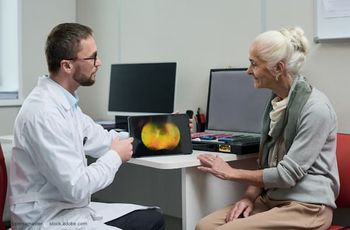
Genetic testing initiative for inherited retinal diseases shows great promise
I have been encouraged as a retinal specialist with all the excitement and promising new treatments in gene therapy. Given that there are several retinal diseases with known inherited patterns and confirmed genetic loci responsible for the clinical manifestations, our field is primed to benefit from the expansion of knowledge in this arena.
Editor’s Note: Welcome to “
Recently, I was watching a movie with my wife in which the plot revolved around the idea of futuristic medical technology and therapies including gene-targeted treatments. While most of it seemed far-fetched at best, there were some aspects that seemed not only feasible, but are actually being utilized in medicine today.
With this as the backdrop, I have been encouraged as a retinal specialist with all the excitement and promising new treatments in gene therapy. Given that there are several retinal diseases with known inherited patterns and confirmed genetic loci responsible for the clinical manifestations, our field is primed to benefit from the expansion of knowledge in this arena.
With the advent of genetic testing for inherited retinal diseases, this has provided another tool in our tool belt to help provide the most advanced care for our patients. The benefits of genetic testing include confirming clinical diagnosis to identify genetic disorders with systemic associations, provide information for family members, and potentially identifying patients that can benefit from gene targeted therapies.
A prime example of this is a new initiative called ID YOUR IRD, an inherited retinal disease (IRD) genetic testing program (Spark Therapeutics). According to the American Academy of Ophthalmology (AAO), genetic testing is appropriate for most patients with presumed genetically caused retinal degeneration and plays an important role in improving the accuracy of diagnosis and prognosis, providing patients and families with specific inheritance risks, and guiding treatment decisions.1
The ID YOUR IRD genetic testing panel includes 31 genes in which mutations have been found to cause certain early-onset, rod-mediated IRDs (see Figure 1). In particular, the three inherited retinal diseases that can be identified are retinitis pigmentosa (RP), choroideremia (CHM), and Leber congenital amaurosis (LCA). Adult and pediatric patients with signs and symptoms suggestive of certain early-onset, rod-mediated IRDs who are U.S. residents are eligible for the ID YOUR IRD initiative. The company has partnered with PreventionGenetics, a CLIA and ISO-accredited laboratory, to provide the genetic test at no cost to your patients.
Courtesy of Joshua Mali, MD
Participants will receive genetic testing and optional genetic counseling sessions at no cost to them regardless of their insurance status (see Figure 2). Although participants will not pay for the costs of genetic testing or the optional genetic counseling, participants are responsible for any other costs they may incur, such as doctor visits.
Figure 2. Courtesy of Joshua Mali, MD
Overall, I encourage all retinal specialists across our great country who take care of patients with suspected inherited retinal diseases (RP, CHM, and LCA) to join me and take advantage of this fantastic opportunity. I have started to utilize this program in my practice and it has been an amazing success; my patients and their families have already benefited tremendously. For more information, visit
Joshua Mali, MD, is a board certified ophthalmologist and vitreoretinal surgeon at The Eye Associates, a private multispecialty ophthalmology practice in Sarasota, Florida. He can be reached at 941-923-2020. He has no relevant financial disclosures.
References
ID YOUR IRD: A Guide for Retinal Specialists (Spark Therapeutics)
Newsletter
Keep your retina practice on the forefront—subscribe for expert analysis and emerging trends in retinal disease management.


































